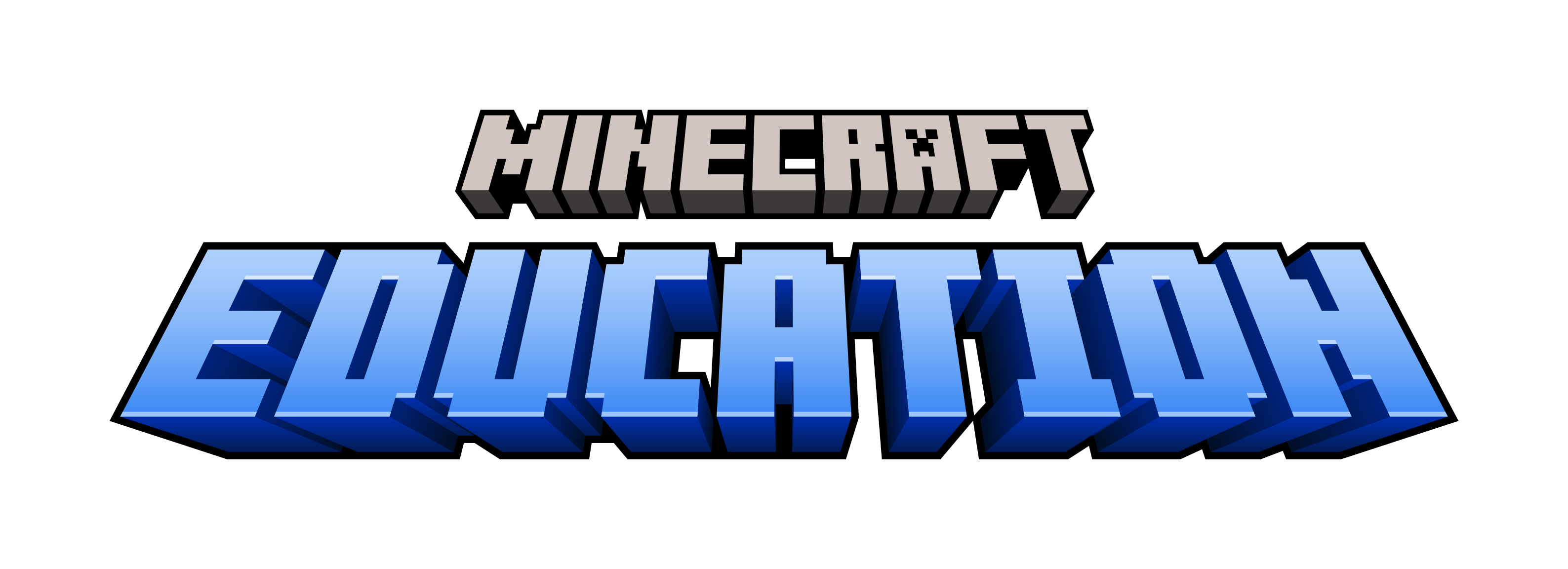Building a Better World with Games For Change
14 May 2021

Add a bit of competition into learning, and you’ll see engagement skyrocket. Give students an opportunity to build a more inclusive world, and they’ll astound you with their empathy and ingenious solutions. These ideas were at the heart of the 2021 Games for Change Student Challenge. Tania Hack, G4C’s Senior Director of Programs, shares the story of how their game jams unleashed creativity, collaboration, and a commitment to diversity for students across the US.
The Games for Change Student Challenge is the leading national game design program and competition that combines students’ passion for video games with digital learning and civic engagement. Each year, the program reaches thousands of students across the country who join hands-on and virtual game design courses, game jams, and a national competition, gaining important 21st-century skills that prepare them for future success. The challenge’s project-based, experiential approach promotes systems-based problem solving, collaboration, creativity, and other critical social and emotional skills.
Social impact themes are at the heart of the challenge, and students explore these ideas through curated resources on the program website and a series of game jams focused on each theme. Ultimately, it encourages students to design and code games about one of the topics and submit their completed games to the annual G4C Student Challenge competition.
During the 2020–2021 school year, Games for Change partnered with Minecraft: Education Edition to develop a challenge theme focused on diversity, equity, and inclusion that would inspire students to design and code games using the game-based learning platform. The Build a Better World theme engaged students with the game design prompt “Take the Challenge: Build a Better World.” The challenge focused on the issue of inclusion: “We believe that we are better together. That means creating an inclusive environment.” With this issue firmly in mind, the game jams kicked off with the following game design prompt: “Create a game that celebrates diversity and teaches people how to uplift marginalized voices. Work individually or in small teams to design and code a game in Minecraft: Education Edition.”
The Game Jams
To help ignite students’ interest in the Build a Better World theme, provide an opportunity to learn how to create projects in Minecraft: Education Edition, and brainstorm ideas for games, G4C hosted a series of three virtual game jams in Spring 2021. G4C Game Jams are half-day, hackathon-style events during which middle and high school students across the country hone their game design skills and prototype projects with support from a variety of experts, including professional game designers, platform and theme experts, and organizations leading the way in STEM, coding, and social impact.
While G4C has ample experience facilitating both live and virtual game jams, this was our first workshop series focused exclusively on using Minecraft: Education Edition. Given the popularity and versatility of the game, we were excited to tap into students’ passion for the platform and offer a familiar outlet for participants to express their experiences and insights into building a better world.
G4C produced and facilitated a total of three game jams with support from a passionate and experienced Global Minecraft Mentor: Dan Noble. Dan onboarded students to the platform through short, guided activities. One introductory activity included an escape room that students could only navigate by mastering the platform controls and exploring game-like features, including Redstone, Command Blocks, NPCs, and more that would later help students during their open design time. Working both synchronously and asynchronously, students flexed their creative critical thinking muscles, identifying unique ways to solve a common goal.
These jams prioritized student-directed learning. A large portion of the day was dedicated to independent design time, where students were responsible for setting their own goals and finding their own solutions to the problems they needed to solve. This played well into one of the strengths of Minecraft: Education Edition. The game gives the player a tremendous amount of autonomy, and there’s always more than one way to achieve a result.
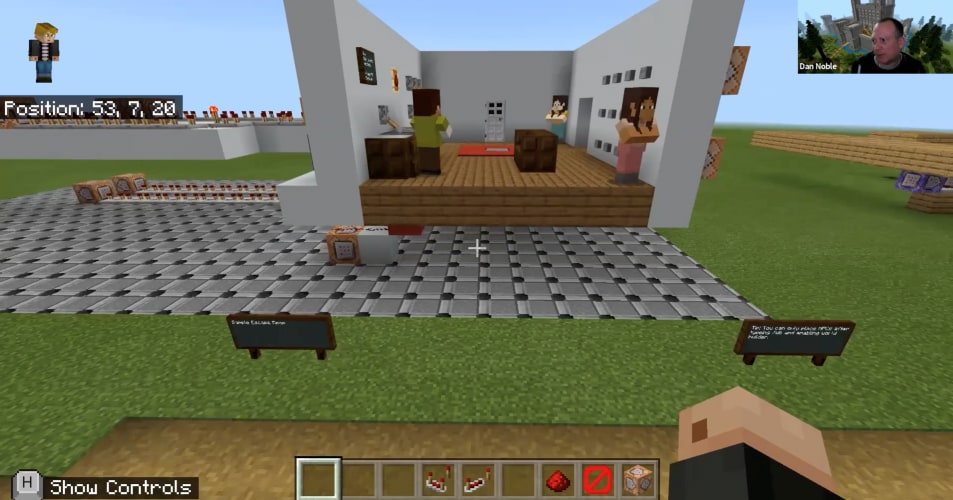 Dan Noble demonstrates the escape room setup for students during the March 20 event.
Dan Noble demonstrates the escape room setup for students during the March 20 event.
One distinguishing aspect of the Build a Better World jams was a collaborative group dynamic that emerged between participants. Both seasoned Minecraft designers and platform newbies were eager to jump into the conversation to support their peers and even show Dan different ways to achieve a common goal. Dan acknowledged just how much he learned from students and described his role not as a lecturer but as the leader of a conversation during which everyone shares their approaches and contributes to the learning experience. He describes this dynamic as one of the most important aspects of teaching with Minecraft: Education Edition.
You’ve got everyone with buy-in in the room, and all [participants] are going to share their perspective, their own experiences, and way of approaching things, and it becomes this great collaborative share-fest—and we all end up walking away with so much more than what we came in with.
Building a Better World
After exploring the game-making platform, we introduced students to the Build a Better World theme, which generated meaningful discussions around social justice, diversity, equity, accessibility, kindness, and inclusion. Students also brainstormed ideas for their games, discussing personal stories, relatable characters, and historic moments they aspired to include in their designs.
To help onboard students to the Build a Better World theme, G4C also worked with Felisa Ford, a Minecraft: Education Edition Ambassador and Technology Specialist from Atlanta Public Schools, who brought a wealth of knowledge around the theme and developing immersive experiences related to social justice in Minecraft.
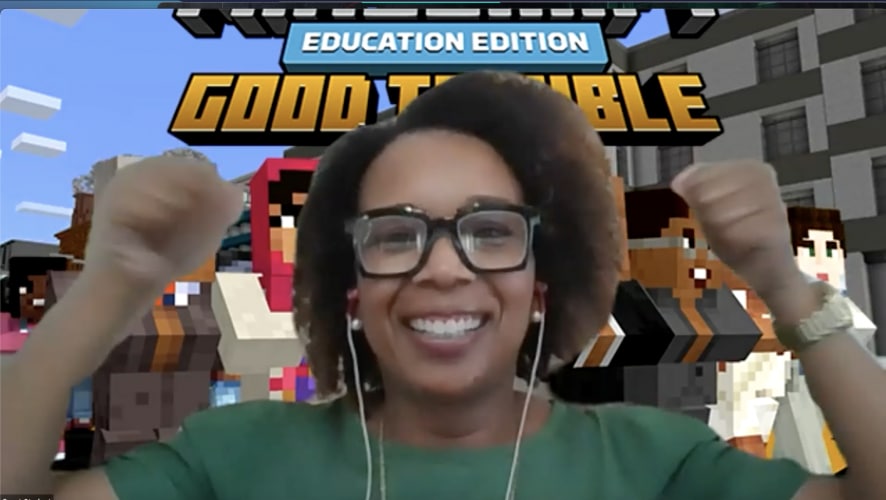 Felisa Ford teaches students about the importance of diversity, equity, and inclusion and celebrates her recently launched social justice lesson plans.
Felisa Ford teaches students about the importance of diversity, equity, and inclusion and celebrates her recently launched social justice lesson plans.
Felisa kicked off her presentation by sharing some key definitions and facts to spark students’ interest. For example, did you know that being around people who are different from us makes us more creative, diligent, and hard-working and that inclusive people are happier and more creative? She also shared some strategies to become more inclusive and spoke about a series of social justice lesson plans that she recently co-created for Minecraft: Education Edition. You can check out Lessons in Good Trouble, The ‘I’ in Identity, Who is Dr. MLK? and more! She also drew parallels between her own processes developing the lesson plans and students’ efforts creating their games, with a major emphasis on the importance of diligent research and cyclical iterative design. Without a doubt, her guidance throughout the game jam series and live participation in the March 20 event was invaluable to students as they brainstormed ideas.
Wrapping Up
At the conclusion of each jam, we asked students to complete anonymous exit-ticket surveys to share feedback on the day. Perhaps the biggest takeaway from the surveys was that students were drawn to the event by their passion for Minecraft: Edition Edition. When asked what motivated them to participate in the day, 85% of participants shared that their main motivation was learning to use Minecraft: Education Edition. Students also shared an overwhelmingly positive response to the Build a Better World theme content, with 100% of respondents indicating that they enjoyed learning about the theme.
Event participants emerged from the sessions with compelling game concepts and prototypes. Their projects tackled complex topics related to the Build a Better World theme, including games that spotlight the histories of underrepresented peoples, showcase creative accessibility designs, share personal stories around identity and race, and feature calls for action to make the world a better place. One student developed a storyline that challenged players to collect resources and build homes for unhoused people.
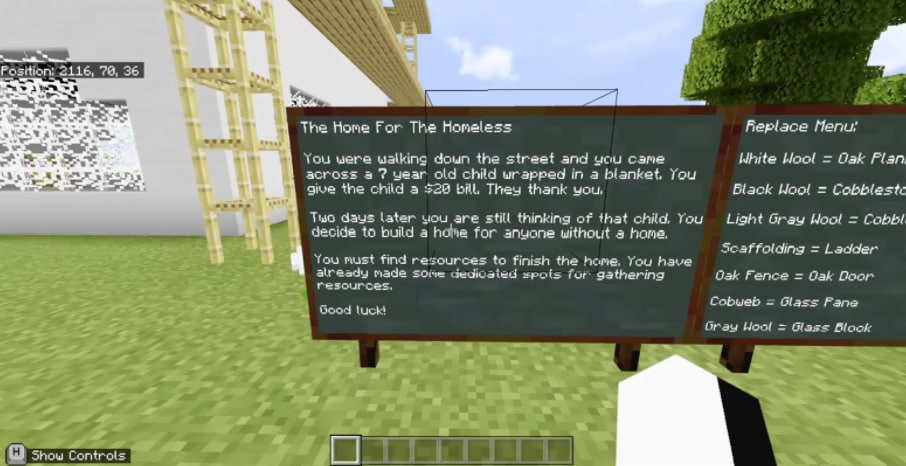
Another student demoed a world she designed as “celebrating all of the colors of the people in the world” and included a school in which the teacher instructs students to work on their projects in diverse teams.
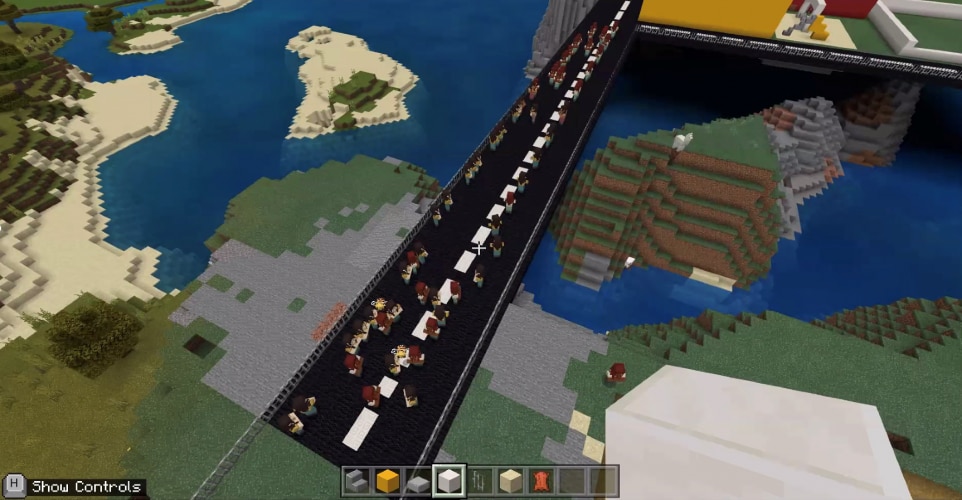
A third student focused on adding accessibility features to a school by including pressure plates to open and close doors and command block wiring that teleports the character up and down to different levels of the school in place of an elevator.
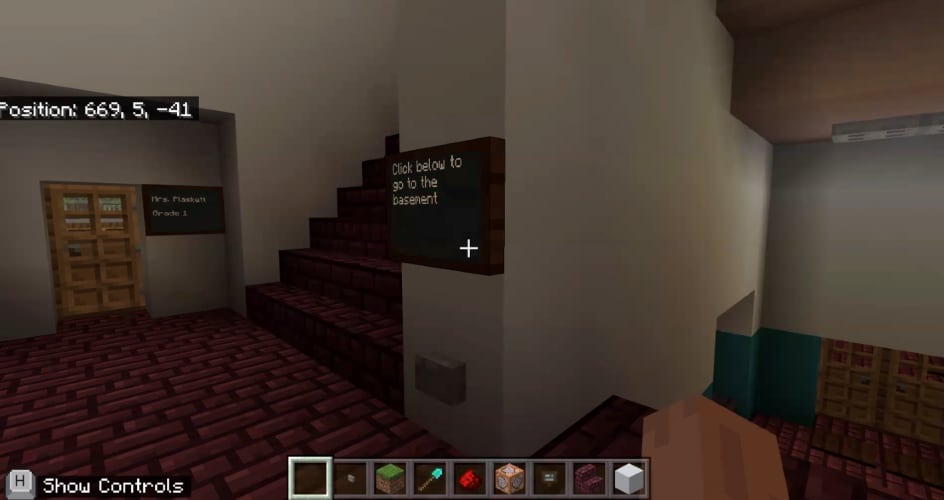
We’re excited to see how those concepts translate into the final projects that students submit to the 2021 competition. The 6th annual G4C Student Challenge culminates on June 17th with a virtual awards ceremony, during which winners will be announced and prizes awarded. Sign-up here to attend the event! We’ll showcase all student finalist games in an online arcade on the challenge website for the public to play and enjoy. We hope you’ll check out the arcade, including the compelling games created around the Build a Better World theme, and consider joining us for the virtual awards ceremony to celebrate the next generation of impact game designers!
***
Tania Hack is the Senior Director of Programs at Games for Change, a non-profit that empowers game creators and social innovators to drive real-world change through interactive media. She oversees the G4C Student Challenge, a national game design program and competition where youth learn to create games about issues impacting their communities. She is a graduate of Cornell University, a social gamer, and an outspoken advocate for the power of interactive media to make the world a better place.
If you’re part of a camp, club, non-profit, or other educational organization and you’d like to run your own build challenge, we’ve recently made Minecraft: Education Edition available to educators outside of traditional school systems. Find out how to get started here. If you’re a teacher who’s new to Minecraft: Education Edition, begin your journey today.
